By: Kelsey Brown
There are not many places in the world made for Black Queer folks
As June rolls around I see the pride advertisements pop up like a field of dandelions
A sea of white
That’s not to say that Black folks have been absent from the movement for LGBTQIA+ equality
In fact, we would not have Pride, or a reason to celebrate without the risks taken by Black and Latino Trans Women from San Francisco to Stonewall
But being Black and being Queer have never been something I’ve taken for granted
I stand on the shoulders of these powerhouse people who made a way long before I was even a twinkle in my mothers’ eye.
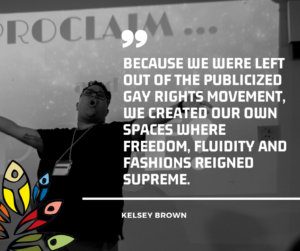
Because we were left out of the publicized Gay rights movement, we created our own spaces where freedom, fluidity and fashions reigned supreme.
Ballroom and the culture surrounding it transforms the lives of all who encounter it
It’s so much more than “Yass Queen” and “Spilling the tea”
It’s a safe space where the outcast and turned away are welcomed into a new family, one that uplifts and affirms
Houses become safe havens and strangers become inseparable
Now don’t get me wrong
Going to a ball is an extravagant affair
And walking the floor in the hopes of securing a trophy for your house is an honor
But the joy that permeates the room is so much more than rainbow capitalism or a “show”
It’s a battle – it’s a place to say “look at me” in a world that would shove us back into the closet – out of sight out of mind.
Shows like Pose on FX and Legendary on HBO Max have provided the world an insider look into the Ballroom scene and has given the “children” an education of sorts on the before, during and after of a still wildly active community of misfits.
These shows pull back the curtain on the lives of the underrepresented –
in Ballroom trans women are idolized, not ostracized.
Houseless folks are taken in and given place and purpose.
The different become the divas and the function doesn’t stop for anything
We leave it all on the floor
Pride month can be difficult for a variety of reasons
We’re all just trying to find our place
Use our voices
Celebrate
Especially after the year and a half we’ve had
But my call to you dear friends is to remember the reason why this celebration exists in the first place
Because of injustice, because of police brutality
Our ancestors took bricks
Broke windows
Disobeyed
And fought back
So that we could dance in the streets
So, we could leave our broken relationships and find our chosen family
So that even after they were gone
We could live
So, get out there friends –
LIVE
WORK
POSE!
May the joy and opulence found in ballroom inspire you this pride season to be your most authentic self. To take up ALL the space and to, when things get tough – leave it on the floor.
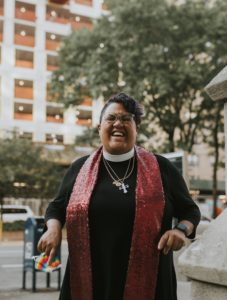 Rev. Kelsey Brown (she/her) describes herself as sometimes funny, very queer, frequently anxious, and completely absurd. A 20-something hailing from Long Island, New York – she comes equipped with the accent & attitude to back it up. In her free time, she is falling back in love with spoken word poetry, breaking it down on the dance floor, and ritual creation. She believes with her full heart that God’s delight in diversity is call for us all to embrace the fullness of humanity. Racial justice and advocacy work fuel her fire, while deep friendships and long naps quench her thirst. She can be seen in her natural habitat – quoting showtunes, doubled over in laughter and challenging others to “do the work.” Her ministry in the Evangelical Lutheran Church in America has taken many courses including camping ministry in New Jersey, Synod work in Metro New York and Internship in sunny Southern California. She is blessed to serve as the Pastor of Jehu’s Table, a Lutheran Church in Brooklyn – Pastor Kelsey brings to the Church a pulse of integrity and personhood for all people, a love of preaching and deep care for the other.
Rev. Kelsey Brown (she/her) describes herself as sometimes funny, very queer, frequently anxious, and completely absurd. A 20-something hailing from Long Island, New York – she comes equipped with the accent & attitude to back it up. In her free time, she is falling back in love with spoken word poetry, breaking it down on the dance floor, and ritual creation. She believes with her full heart that God’s delight in diversity is call for us all to embrace the fullness of humanity. Racial justice and advocacy work fuel her fire, while deep friendships and long naps quench her thirst. She can be seen in her natural habitat – quoting showtunes, doubled over in laughter and challenging others to “do the work.” Her ministry in the Evangelical Lutheran Church in America has taken many courses including camping ministry in New Jersey, Synod work in Metro New York and Internship in sunny Southern California. She is blessed to serve as the Pastor of Jehu’s Table, a Lutheran Church in Brooklyn – Pastor Kelsey brings to the Church a pulse of integrity and personhood for all people, a love of preaching and deep care for the other.
UPCOMING EVENT
Click Here to view full event flyer

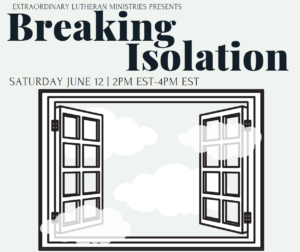

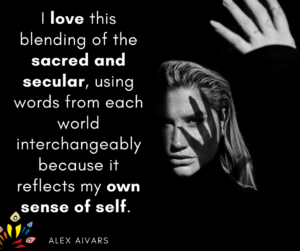
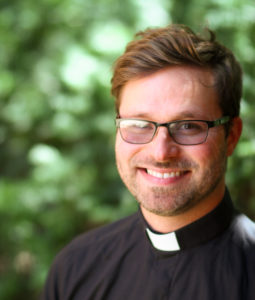
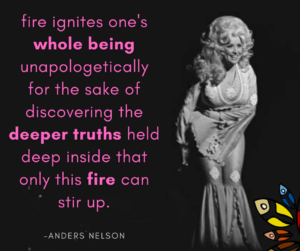
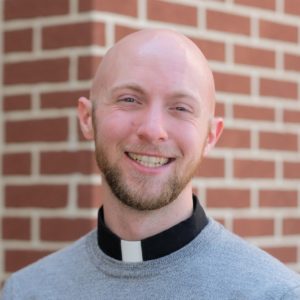
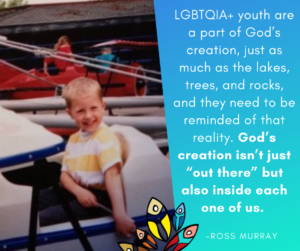
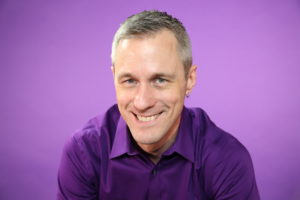
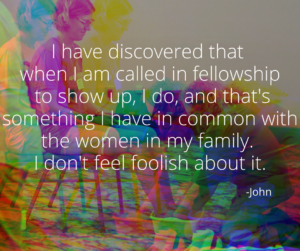
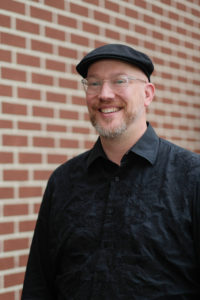
 The Rev. Laura Kuntz (she/her/hers) is serving as interim pastor and lives in Cleveland, Ohio with her wife and two dogs. Something that brings her joy is being a part of the Buy Nothing Project in her neighborhood, where people give to their neighbors out of their abundance. Her favorite items she has received were a small Ikea greenhouse and a box of old trophies she used to make a hat hanger for a friend. She loves to give away plants and anything that someone has a need for.
The Rev. Laura Kuntz (she/her/hers) is serving as interim pastor and lives in Cleveland, Ohio with her wife and two dogs. Something that brings her joy is being a part of the Buy Nothing Project in her neighborhood, where people give to their neighbors out of their abundance. Her favorite items she has received were a small Ikea greenhouse and a box of old trophies she used to make a hat hanger for a friend. She loves to give away plants and anything that someone has a need for.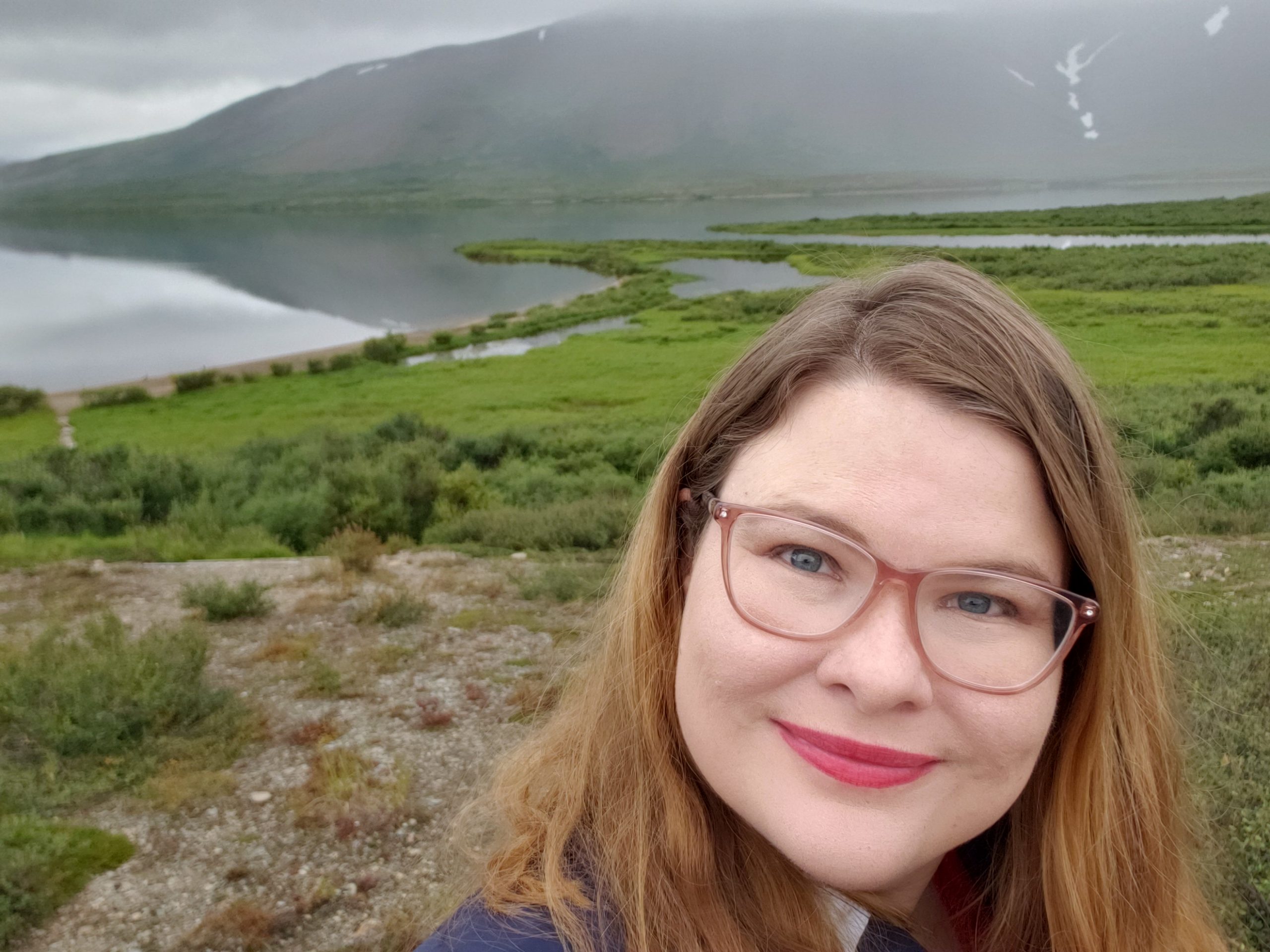


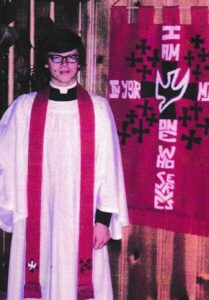
 Comparatively speaking, my time back in professional ministry has been really short. It comes out to just over 2 years and 11 months. It sounds more impressive in days. That’s a total of 1074. Renewed ministry flowing in my veins every single one of them. Soli Deo gloria – with a little help from my friends.
Comparatively speaking, my time back in professional ministry has been really short. It comes out to just over 2 years and 11 months. It sounds more impressive in days. That’s a total of 1074. Renewed ministry flowing in my veins every single one of them. Soli Deo gloria – with a little help from my friends.
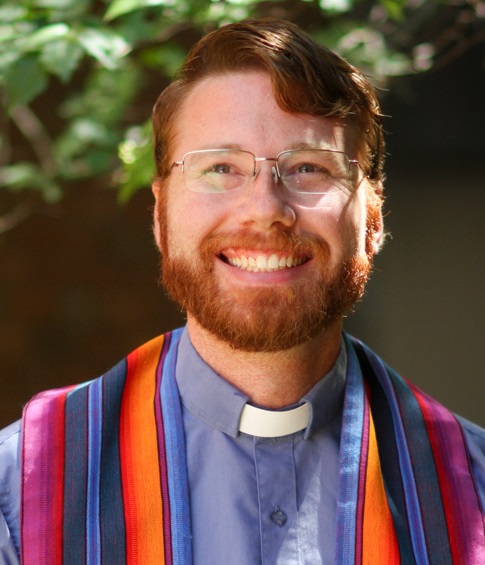

 At one end is “the closet” and the other end is “coming out”. I ask them to try to come up with as many different reasons as they can about why someone would stay in the closet and we would write them on the walls of the maze.
At one end is “the closet” and the other end is “coming out”. I ask them to try to come up with as many different reasons as they can about why someone would stay in the closet and we would write them on the walls of the maze.